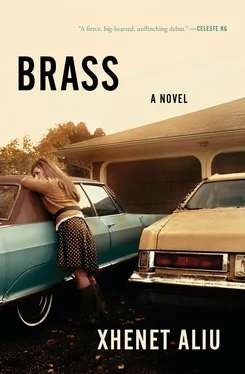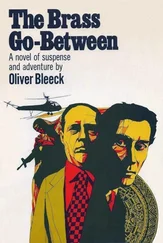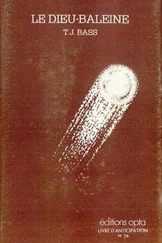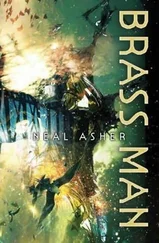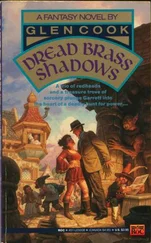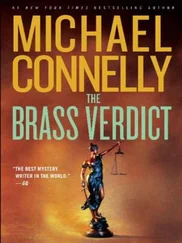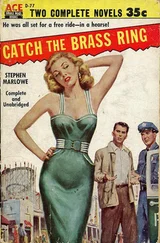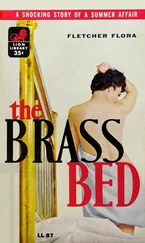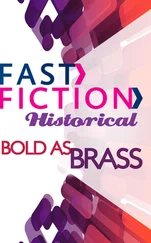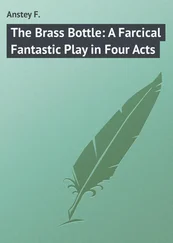“Ew, the Ross? Why don’t we go to Chili’s?” she’d asked when you suggested a trip there.
“I keep hearing about how good their gravy fries are,” you’d answered.
“Ew, gravy fries?”
“And there’s this guy I’m kind of into who hangs out there,” you’d said.
The guy to whom you’re referring is the one you’ve suddenly decided you can’t live without, the one who will make you make sense, the one whose failures of both nature and nurture constitute the sloppy human pieces you’ve attempted to assemble into a functional unit. Before, your father was something whose existence you were told of only so that you’d know to avoid it, like poison ivy or crystal meth. But, as with recreational drugs, you have become aware that you have not been told the whole truth about things. There’s got to be something good about something people will ruin everything for just to get ahold of, the way your mother once apparently did with your father. Finding him has, in the three days of your out-of-school suspension, become an obsession, the way Beyblades were when you were little, and making unwearable hemp jewelry was two years ago, and Fleetwood Mac secretly is to you now, after hearing “Landslide” on some classic rock station and weeping like you’d lost something instead of discovered it. It’s clear to you now that those things have all been surrogates for what you’ve actually been looking for, red herrings meant to trick you into not seeking out the one true thing. Your father, you are certain, will make everything else fall into place. You are two broken parts that must be reassembled in order to serve any purpose at all.
At the very least, maybe he can cough up seventeen years of child support to cover a security deposit on an apartment near Washington Square, where you’ll work out a feasible Plan B and feel not even a pang of envy for the kids on the street power-walking to their classes at NYU.
In any case, it’s nothing you can explain, and it’s not the kind of thing Teena, with her French Canadian auto mechanic father who fixed her up an Acura coupe the second she turned sixteen, would understand. So you talk instead about a random guy, and she indeed agrees to go with you one Friday evening, on the early side, before the latest of her security guards gets off for the night, in multiple senses of the phrase.
The Ross was the only place to begin this search, not because of the gravy fries but because the place is known in Waterbury as Little Albania, staffed and frequented by guys with eagle tattoos and dark jeans with elaborate embroidery on the ass pockets, and of course their women, 100 percent of whom could serve as Pirelli calendar models but instead study chemical hair-relaxing techniques at the local cosmetology school. These are the Kosovar Albanians, the ones who began to migrate in the late nineties, when the Serbs began their ethnic cleansing in the Balkans, learned English fluently in two weeks, and briefly broke their parents’ hearts by dating Italians and Puerto Ricans before marrying, of course, fellow Kosovars. You know this type of Albanian from your school, and thus you know that they are not your people. You were descended from the ones who sponsored the Kosovars’ visas, the older crew of Albanian Albanians who run the Betsy Ross Diner, old-world people who’d come over beginning in the seventies under the false impression that there was still work in Waterbury’s brass foundries. The Albanian Albanians found the Kosovars slightly stuck up, raised as they were with a relatively benign Yugoslavian form of Communism, and put them to work cleaning bathrooms and running cheap Greek food to cheap American tippers. You knew that your mother had done the same kind of work once, before the Albanian Albanians had begun serving strictly as an employment agency for displaced Kosovars and were willing to take a second-generation Lithuanian girl on, if only to get her knocked up with one of their very own. While it had occurred to you in the past that your father’s people might perhaps still run the joint, it was a recent revelation to realize, as obvious as it should have been, that your father’s people are also your people. You have people! You do, you do, you do, and they aren’t Miguel or Latoya or Samantha, which maybe explains why things hadn’t worked out with them. You do have people, regardless of what your mother has to say about it.
Your mother never has much to say about it, is the thing. It’s as if she believes that the blanker your slate, the more room you’ll have to fill it in with better things. It seems so naïve to you now that you once believed that, too.
As you enter the Ross, you see people with deep pockmarks, people who likely have no Social Security numbers, people who you would guarantee have lived lives you cannot and do not want to imagine, each of them most decidedly not attractive. Funny how a tattoo goes from a cool thing to a terrifying thing once it’s applied to a face. For a moment you wonder if it might not be better to choose ignorance over these prospects.
“Chili’s has those really good seasoned fries,” Teena says, scanning the room.
But that email from NYU flashes before your bruised and bleary eye, and it gives you courage to ignore Teena and ask for a seat. The young male host manages to convey both utter disinterest in moving from behind the counter and simultaneous rapt attention to your boobs. At least they distract from your black eye, or from the quarter inch of Maybelline cover-up you’d Pan-Caked on top of it.
“You want to sit? Why don’t you keep me company up here?” the host says, his smile not really imbuing his tone with any charm.
“No thanks,” you say. “Booth, please.” And you smile, because you’re still young enough to think you’re supposed to be polite to everyone, even lecherous diner hosts who must have been made aware of the statutory rape laws in this country, no matter their citizenship.
You scan the room and notice a couple of waitresses floating around whose feathered hair and cankles give them away as Waterbury lifers rather than Albanians, and some busboys who would probably rather retain their virginity than give it away to the likes of those old broads, but nobody who fits your profile.
“Is he here?”Teena asks.
“I don’t think so,” you answer, and you don’t have to act to convey your disappointment. What a dumb idea this was in the first place. Your people probably sold the Ross and fled years ago, also carriers of the Hasani cut-and-run family inheritance you are well aware of despite never having met a single damn one of them. Your family’s coat of arms likely consists of a giant middle finger and the tailgate of a chariot.
One of the ragged waitresses takes your orders—coffee and a side salad for Teena, coffee and gravy fries that you have no actual intention of eating for you—and before you can ask for a straw so you don’t have to put your lips to the plastic tumbler of water, you’re approached by two young men, who, from the neck up, are actually not un-hot, though their Fast and the Furious fashion sense, all tight T-shirts and leather jackets reinforced with yet more leather at the elbows, is not quite up your alley. You imagine yourself with an intentionally messy-hair type, with jeans that came off the rack but are clearly built to his specs at the denim factory, someone with whom you can discuss the Nabokov that you’re obviously going to read someday, once the Stephen King stuff stops being so damn good. Basically, you’re waiting for someone who doesn’t hang out in alleys, never mind yours.
“What are you girls up to tonight?” one of them asks, both of them dropping into the seats next to you uninvited, their motorcycle helmets like giant reptile eggs they’ve been charged with protecting.
Читать дальше
